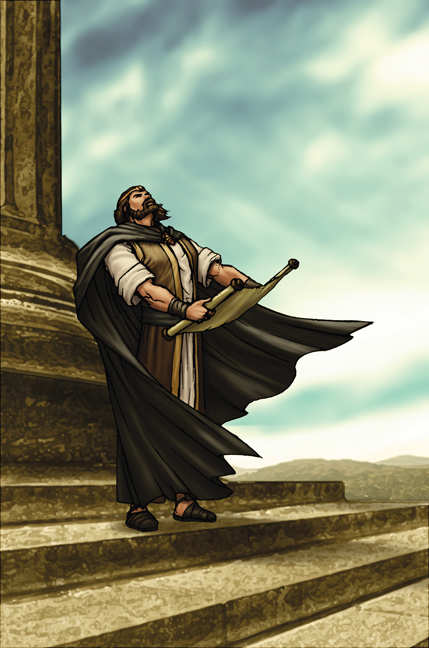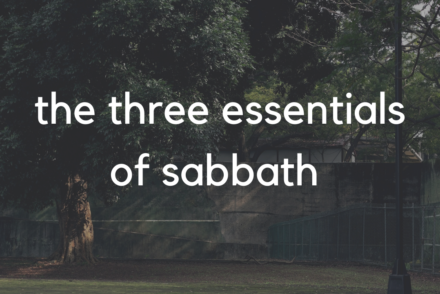In my Bible reading this morning I found myself in 2 Kings 22-23, reading the story of Josiah, one of Judah’s kings who is said to have done “what was right in the eyes of the LORD and walked in all the way of David his father, and he did not turn aside to the right or to the left” (2 Kings 22:2). In the midst of my reading, I paused and looked out of the window that I was sitting near, and watched the steady stream of college students heading from class to class. The question entered my mind; can God make this generation a generation like Josiah? Would he be so gracious to us as to raise up hundreds and thousands of young men and women who will do as that young king did, casting down the idols that had filled his culture? Oh, how eager I am to see that become a reality!
Josiah stepped into his position as king at the age of 8, taking power in a culture that had seen hundreds of years of rulers who had led people deeper and deeper into idolatry, child sacrifice, prostitution, and every sort of evil. Manasseh, a king shortly preceding Josiah, was said to have done, “what was evil in the sight of the LORD, according to the despicable practices of the nations whom the LORD drove out before the people of Israel”(2 Kings 21:2). Not only that, God himself declares that Manasseh’s evil was greater than that of the Amorites who God had used the Israelites to destroy. (Kings 21:11-12)

Though America and the west may not have the idols in a physical form like the people of Judah did, the culture that Josiah stepped into is not much different than ours, having been steeped in the worship and love of anything and everything other than the one true God, yet still believing that they were God’s chosen people. Josiah’s actions show the massive contrast between a person who truly loves the Lord their God with all their heart, soul, mind, and strength. (Mark 12:30)
At the age of 26 Josiah calls for a restoration of the Lord’s temple, in the process discovering the Book of the Law. Shaphan, king’s secretary, reads the book to him, and Josiah’s reaction is one of true repentance as he tears his clothes, weeps, seeks to inquire of the Lord, calls the people together to hear the reading of the Law, and begins a massive reform that doesn’t stop until he has removed every idol in his culture.
I can’t help but wonder what it would look like if there was a wave of people in our time that had hearts like Josiah’s. As I noted a few days ago, it seems to me that the Lord is working in people’s hearts to move them towards that Josiah-like passion for the restoration of the Lord’s glory. In view of that hope, I want to point out five things in this young king’s life that will be essential if we are to be instruments of reformation in our day.
——–
1. A Rediscovery of the Word of God.
For Josiah this is what started everything. For perhaps the first time in his life he truly heard the Word of the Lord read to him and understood it. It was this that inspired his reformation, and it will be no different for us. We must discover and dwell in the scriptures, or all else will be futile. As we read, meditate on, and study what the Lord has revealed to his people, our hearts will be transformed and we will meet the Lord and discover that he is far more worthy of our love than any idol of this earth.
Reading the Word will reveal to us our own sinfulness, God’s glory, the way that we aught to live, and much more. The return to scripture is the first and perhaps most essential piece of any reformation, for it will align our minds with heaven. I rejoice to see this happening in my day, and urge you, my brothers and sisters, to continue in it!
2. Heartfelt Repentance
No matter how well we do with our study and reading of the Word, it will avail us little if it is not coupled with true repentance. The scriptures are a double-edged sword, given for the purpose of piercing us to the core and revealing where we have gone astray from the ways of the Lord, and any man who comes in contact with their true edge will be led to repent. Josiah certainly felt that piercing, and responded appropriately. He didn’t wait until he was alone, he didn’t worry about his public appearance, and he certainly didn’t try to cover up certain parts of his sin. Instead, “When the king heard the words of the Book of the Law, he tore his clothes.” (2 Kings 22:11) Josiah tore his royal robes in the sight of his secretary and all the court, so great was his remorse at the way he and his people had gone astray. Oh how we need men and women like that! Throughout history, true repentance has been a marker of revival in a culture. When God’s people not only ingest his Word but are laid low by it and repent of their sins, God hears and responds. He certainly does so in Josiah’s case, saying,
because your heart was penitent, and you humbled yourself before the LORD…and you have torn your clothes and wept before me, I also have heard you, declares the LORD.
2 Kings 22:19
Let us not forget repentance, my friends. Filling our heads with thousands of pages of the Bible will do us no good if it does not lead to us being pierced by it so as to change our ways. This is something that will not happen without the presence of prayer, which leads me to our next point.
3. Seeking the guidance of the Lord
Not only does Josiah hear the Law of the Lord read and repent in response, he also seeks direct counsel from the Lord and listens to what he hears. Similarly, our reading of the Word must be mingled with and matched by our passion for prayer. In my own experience, prayer comes second only to meditation upon the Word in its power to transform my heart and draw me to the Lord, and I am certainly not the only one to note how essential prayer is. Robert Murray McCheyne wrote,
We are often for preaching to awaken others; but we should be more upon praying for it. Prayer is more powerful than preaching. It is prayer that gives preaching all its power. . . . Why, the very hands of Moses would have fallen down, had they not been held up by his faithful people. Come, then, ye wrestlers with God—ye that climb Jacob’s ladder—ye that wrestle Jacob’s wrestling—strive you with God, that he may fulfill his word.
– Via John Piper at the Desiring God 2011 Pastor’s Conference
May all of our study of the Word and repentance lead us to early, long, and constant communion with our Lord in prayer, for he is a God who hears his people’s cries. It is in our prayer before the very throne of Yahweh that we will gain our strength and passion to go out into the world and be instruments of transformation. Not only that, but prayer is essential in giving us the wisdom necessary to engage with a culture that opposes us, particularly when we do the next point.
4. Spreading of the Word
For the man or woman who has tasted the heart of God, it is never enough for to see only themselves transformed. Though it would have been an excellent thing for Josiah to hear the Law, repent, and seek the Lord, but he cannot stop there. Instead, he calls together all the people and has the law read to them, publicly covenanting as their king to,
walk after the LORD and to keep his commandments and his testimonies and his statutes with all his heart and all his soul, to perform the words of this covenant that were written in this book. And all the people joined him in the covenant.
– 2 Kings 23:3
In order for our world to know the Lord, we must be a people who make known the Word. The commission that Jesus left his followers with was to make disciples wherever they went (Matt. 28:18-20), and the apostle Paul makes it clear that this cannot be done without vocalizing the gospel. (Romans 10:14-17) Like Josiah, the change must begin in us. We must discover the precious truths of the Word and fill ourselves with them, responding in repentance and prayer, but it won’t do the world any good if we don’t tell them about what we have received.
When, by the power of the Holy Spirit, they hear and are “pierced to the heart,” there will be great reformation, which leads to our final observation.
5. Ruthless Reform
All of what we have looked at beforehand leads to this; the destruction of idolatry and a return to the one true God. Josiah’s reform was ruthless, a tearing down, burning up, and desecrating of every place of idolatry in his culture. Unlike many kings before him whose half-hearted reformations removed some of the high places and temples, Josiah does not stop until there is no altar left standing.
Please don’t misunderstand me. I’m not advocating going and destroying buildings or objects or people that are idolized, but there is a way that we are called to bring war to bear against that which draws people away from loving the Lord with all their hearts, souls, minds, and strengths. To understand how that looks in your context takes much discernment, counsel, and wisdom, much of which will flow from practicing what we have already noted. The main point I want us to take from Josiah’s life is something I’ve written about before; he didn’t stop the battle against sin until it was completely finished, and neither can we. I urge you, do not stop working to see yourself and your culture transformed until it is utterly conformed to the image of Christ. And that means you don’t stop working until either you lay down to die or Christ returns to complete the work.
——
Judah had Asherah poles, altars to Baals, high places set up to worship the sun, moon, and constellations, altars for the sacrifice of children in the valley of Topeth, astrologists and necromancers, and houses of male and female cult prostitutes. We have the love of personal appearance, self-gratification, naturalism, abortion, horoscopes, and pornography, in day-to-day culture. Josiah, at the age of 26, instigated a transformation in Judah that hadn’t been dreamed of for over 200 years. He came in contact with the Word of the Living God, repented, sought God, proclaimed the Word, and did not allow any idol to stand in his lifetime. My friends, do we not need Josiah’s in our day? I see no reason why we cannot be like him, if the Lord so wills it.
Join me in praying and working to see such a thing come to pass.



1 Comment
This is a good reminder to seek the glory of God, and not to chase after idols but to go against the grain to change the world.